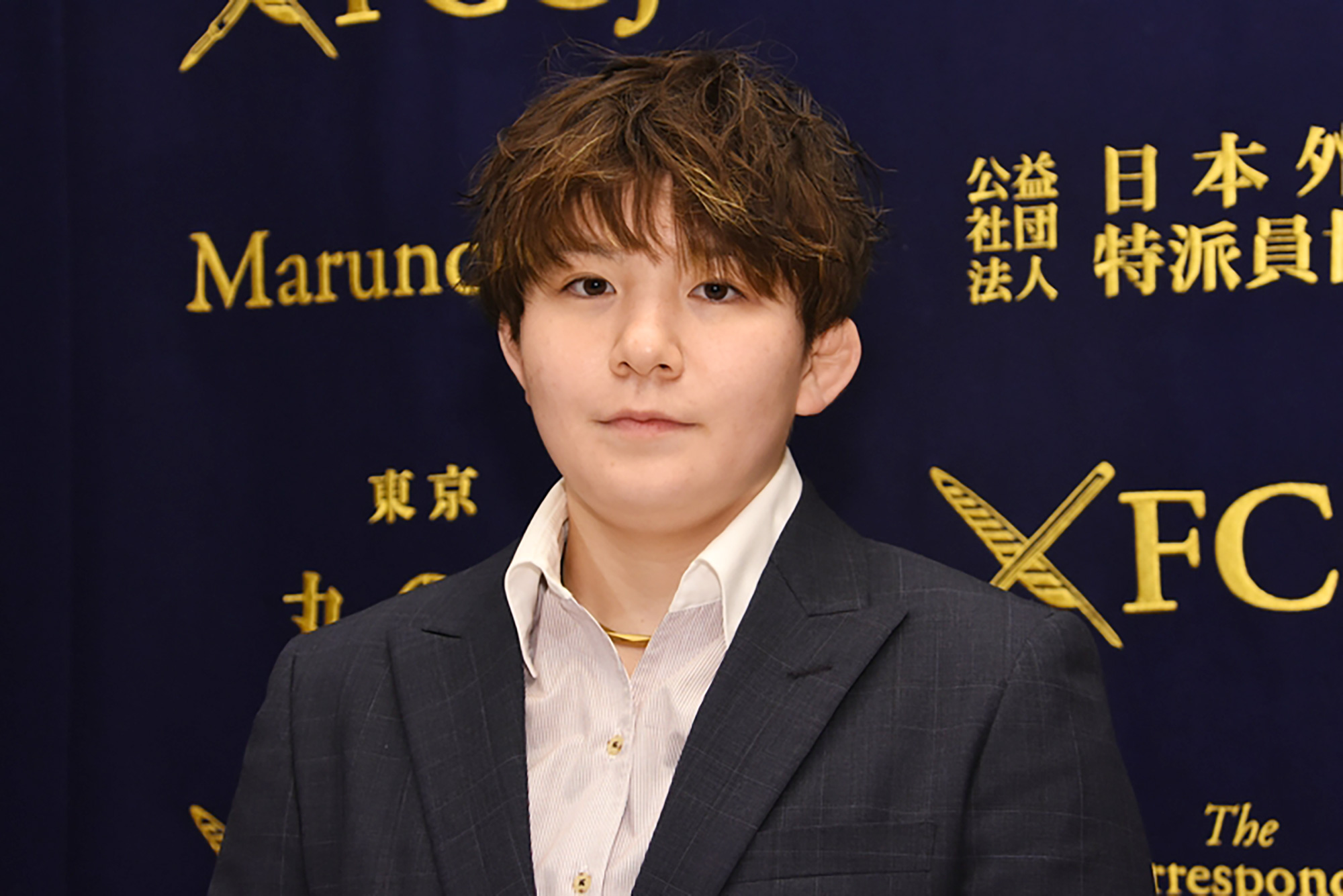Issue:
January 2024
Rina Gonoi strikes a blow against rampant sexual abuse in Japan’s self-defense forces

The destruction and loss of life aside, the Great East Japan Earthquake in March 2011 had a lasting impact on Rina Gonoi. Then an 11-year-old middle school student and an exceptionally talented judoka from Higashi-Matsushima in Miyagi Prefecture, she watched in awe how members of Japan Self-Defense Forces (SDF) rescued survivors and helped people caught up in the disaster’s aftermath. Years later, she would enlist and become one of only a small number of women in the SDF.
Yet nothing could prepare Gonoi for the culture of harassment and fear she encountered. After enduring months torment, culminating in an alleged sexual assault, she decided to speak out about sexual violence in the military, most of it targeting female recruits. After her superiors refused to take her allegations seriously, she left the SDF in August 2022 before going public with claims that she had been sexually assaulted by five male colleagues the previous year.
On December 12 last year, the Fukushima District Court found three defendants – Shutaro Shibuya, Akito Sekine and Yusuke Kimezawa – guilty of “forced indecency” and sentenced them to two years in prison, suspended for four years.
The men had denied the accusations and had been dishonorably discharged from JSDF.
Gonoi said she had endured verbal and physical harassment on an almost daily basis in 2020 and 2021. Her male colleagues would comment on her body and the size of her breasts, and grope and hug her from behind in front of other soldiers.
The worst incident took place in August 2021, when the three men used martial arts techniques to pin her on to a bed in a dorm, before forcing apart her legs and, one by one, repeatedly pressing their crotches against her to simulate a sex act while more than 10 other male colleagues and supervisors watched and laughed.
Gonoi’s case is the tip of the iceberg. A subsequent defense ministry investigation uncovered 1,325 incidences of sexual harassment and bullying targeting women and men, most of which had not been reported. In the case of Gonoi, the ministry admitted wrongdoing and issued an apology.
In September last year, the chief-of-staff of the Ground Self-Defense Force, Yoshihide Yoshida, said in a statement: “On behalf of the Ground Self-Defense Force, I would like to express my deepest apologies to Ms. Gonoi, who has been suffering for a long time. I am very sorry.”
When asked during a press conference at the FCCJ a day after the court verdict, Gonoi said: “Things such as sexual assault can’t be passed off as a joke. A crime is a crime.”
Gonoi had faced her assailants several times in court since the trial began in late June last year, but what nearly broke her was the constant harassment and slander she had endured on social media since going public with her allegations. It is not wonder that many Japanese women who have had similar experiences, and not just in the military, remain silent for fear of sparking an online backlash.
The bigger problem is that allegations by survivors like Gonoi are usually brushed off as misunderstandings or overreactions. If an investigation does take place, the outcomes are often inconclusive because so few women feel able to testify, meaning that the alleged perpetrators receive little or no punishment.
It comes as no surprise that most of the 1,325 claims uncovered by the defense ministry came to nothing. Many survivors felt there was no genuine interest in addressing their claims, with some complaining they had been “passed around” among counselors. In some cases, they received no response from SDF authorities, despite reporting the incidents and consulting counselors.
Gonoi said she had told her superiors about the assault and “tried hard to keep it inside the SDF”. She decided to go public after an internal investigation concluded no crime had been committed.
Aiko Ohta, an attorney who represents survivors of sexual assault, noted that one of the defendants had told the court that he had only tried to make people laugh, so his actions did not constitute sexual assault.
“In cases of indecent assault, it is not only the intention of the perpetrator that should be considered when making a judgment, but the nature of the act itself, the context and many other factors,” said Ohta, who appeared at the FCCJ alongside Gonoi.
In November, Gonoi was included in the BBC’s list of 100 “inspiring and influential women” for 2023 and named in Time magazine’s “100 Next” list of people to watch.
Gonoi is now pursuing a separate civil case against the Japanese state and all five SDF members. Despite everything that has happened to her, she is still a strong advocate of women in in the military and the SDF in general. Now that she is an ex-soldier, she hopes to teach judo and even compete for Japan in the Olympics.
Ilgın Yorulmaz is a freelance reporter for BBC World Turkish. She is the Second Vice President of the FCCJ.

